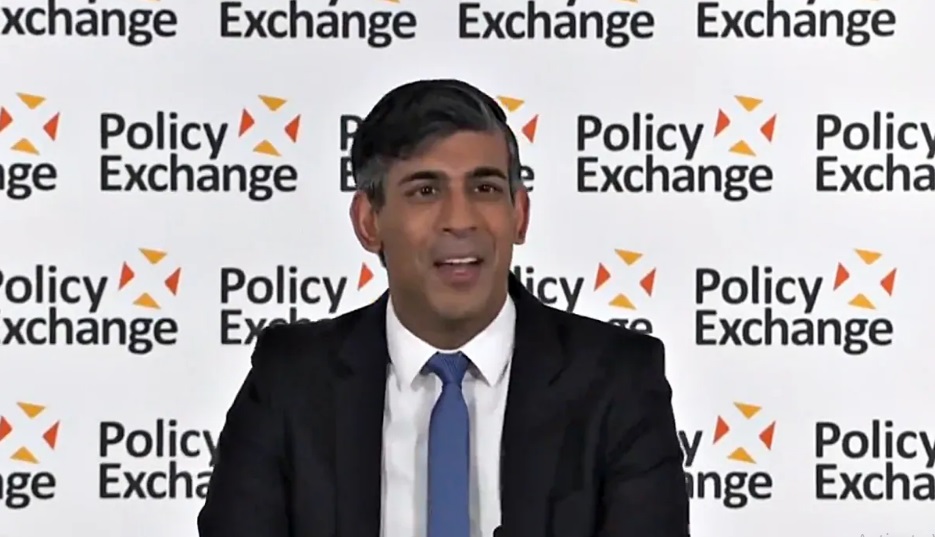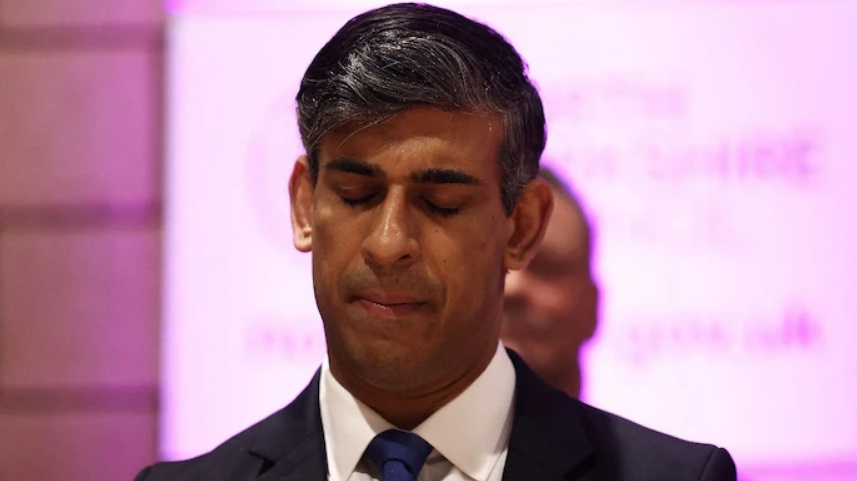
British PM Sunak calls on Lords to enact his asylum law for Rwanda
In London on January 18, British Prime Minister Rishi Sunak urged the upper house of parliament to support and pass his proposal to relocate asylum seekers to Rwanda. This comes a day after he successfully navigated a potential rebellion within his party over the contentious legislation.
During a press conference where Sunak aimed to convey unity within the Conservative party regarding his strategies to address illegal immigration, he implored the House of Lords to assist in initiating the flights before this year’s election.
It was a distinct acknowledgment that Sunak is apprehensive about the unelected upper house potentially obstructing his efforts to implement his Rwanda plan. This concern arises from the possibility of the House attempting to introduce modifications or prolonging a process that he urgently needs to conclude to fulfill his commitment of commencing the flights in the spring.
Diminished by the unsuccessful rebellion that underscored the profound rifts within his party, Sunak reiterated his mantra, emphasizing that it was crucial to “adhere to the plan.” He affirmed that his “plan was yielding results” while asserting that the opposition Labour Party had “no plan” of its own.
The unsuccessful rebellion has diminished his influence within the party, as those advocating for alterations to his Rwanda legislation expressed frustration with Sunak’s refusal to address their concerns. An opinion poll underscored the declining fortunes of his party, indicating that support for the Conservatives is at its lowest since former Prime Minister Liz Truss was ousted from office.
‘STEP TOWARDS TOTALITARIANISM’

Inherited from former Prime Minister Boris Johnson, the Rwanda plan has become a source of trouble for Sunak, particularly after courts declared last year that the plan was illegal.
Under pressure from right-wing Conservatives, he swiftly pursued a new treaty with Rwanda and subsequently crafted new legislation to minimize the potential for asylum seekers to challenge deportation orders.
However, the new legislation has created divisions within his party. Approximately 60 right-wing lawmakers attempted, unsuccessfully, to strengthen it. Although Sunak reduced the rebellion on Wednesday to just 11 Conservative lawmakers, there is unrest within the party.
In an effort to address their concerns, Sunak reiterated his intention to disregard orders from the European Court of Human Rights, which can impose temporary emergency injunctions on deportations. He emphasized, “I’ve been consistently clear that I won’t let a foreign court impede us from initiating flights and implementing this deterrent.”
Nevertheless, he still encounters several obstacles in commencing the deportations he believes will act as a deterrent for migrants undertaking boat crossings to Britain from France. Sunak confronts numerous opponents in the House of Lords, where peers are already aligning to modify, annul, or delay the legislation upon which the prime minister has staked much of his reputation. Alex Carlile, an independent member of the House of Lords, characterized Sunak’s legislation as a “step towards totalitarianism,” citing concerns about its impact on the integrity of the legal system.




